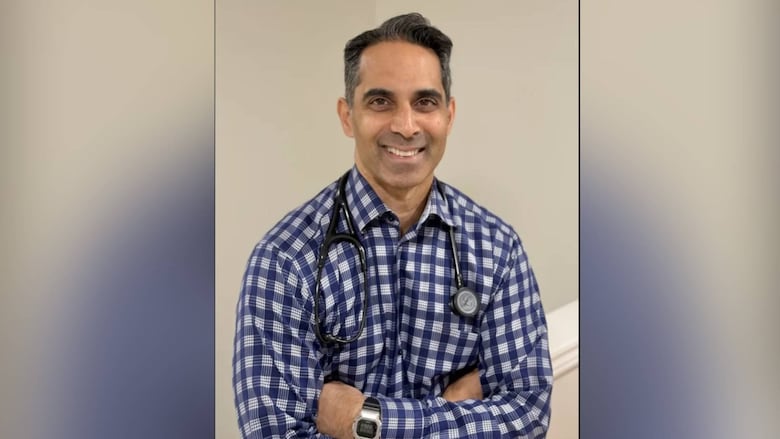New compensation model favourably received by London family doctors
If approved, doctors could bill for administrative work that comes with more complex care

Some London-area family doctors say a new compensation model aimed at recruiting and retaining more practitioners in Ontario is a step in the right direction to alleviating the doctor shortage.
The provincial government and Ontario Medical Association (OMA) said on Wednesday that they're close to reaching a new compensation deal for family doctors to bill for administrative tasks that are currently unpaid, including lab tests and patient referrals, on top of clinical duties.
The new model called FHO+ would allow roughly 6,500 family physicians to be compensated for tasks such as filling out forms, charting and reviewing tests results. They currently spend an average 19 hours per week completing these tasks, according to the Ontario College of Family Physicians.
"It's a good change that addresses a lot of the problems that were being expressed by those of us in primary care and those of us looking to try to get more doctors going into primary care," said Dr. Vineet Nair, a family doctor and co-chair of the Middlesex-London Primary Care Network.
"Every patient visit generates some paperwork and we didn't get into this job to do paperwork. We want to see patients and that did take away from our time to help patients directly. The fact that this is addressing one of the biggest pain points that we are hearing is a great sign."
Roughly 2.5 million people in Ontario don't have a family doctor and the Ford government has promised to connect every Ontarian to a family doctor or primary care team by 2029.

Nair said many factors contribute to a physician shortage that span beyond just paperwork. These include managing patient referrals to different clinics or systems such as hospitals and long-term care facilities, and trying to find the right place for them, causing longer wait times for patients.
"Those steps can be challenging, which can lead to a lot of extra burden toward primary care particularly because we're the ones that are really following that patient throughout the whole process," he said.
Middlesex-London is "drastically under-serviced" in terms of the number of doctors and primary care providers available for patients, said Nair, who estimates more than 60,000 people in the area are without a family doctor.
In April, London city council voted against providing $50,000 for one year to the Middlesex-London Ontario Health Team, that led doctor recruitment efforts.
New model could keep more doctors in Ontario

The existing payment structure, called the family health organization model, is outdated and doesn't account for the fact that patients now have more medical complexities than in the past. That's led to increased paperwork compared to years prior, OMA's CEO Kimberly Moran said.
"Now we have more tests that we can do, which is great for patients and diagnostics, but it does take a family doctor an awful lot more time to read the results of all these tests and take action," she told CBC's Afternoon Drive on Wednesday.
"In the past we haven't had incentives for that type of complexity in patients. We hope that it's going to have an impact on attracting more doctors to come to practice family medicine."
A spokesperson for the Ministry of Health said in an email that the "FHO+ model incentivizes enrolling new patients, promotes shifting procedures to clinics instead of emergency departments, and strengthens incentives for after-hours care to expand access."
It would also motivate new doctors to stay in Ontario instead of practicing in other provinces, said Montana Hackett, who recently completed his residency in family medicine at Queens University, and previously studied at Western University's Schulich School of Medicine and Dentistry.
"A lot of my colleagues have seen the steps different provinces have taken to make the practice environment more optimal for us. We looked at Ontario and said 'we're lagging behind and this isn't necessarily the place we, as graduates, would want to work,'" he said.
"This process has changed that and definitely make me think Ontario has a much better opportunity for me as someone who's from here and has trained here, so I think it will hopefully attract more people to stay and actually come here as well."
The proposed deal was sent to arbitration in June, with a ruling expected in the fall. Moran said the deal is about 90 per cent agreed upon and would be in place in April 2026, if finalized.
With files from Ethan Lang

